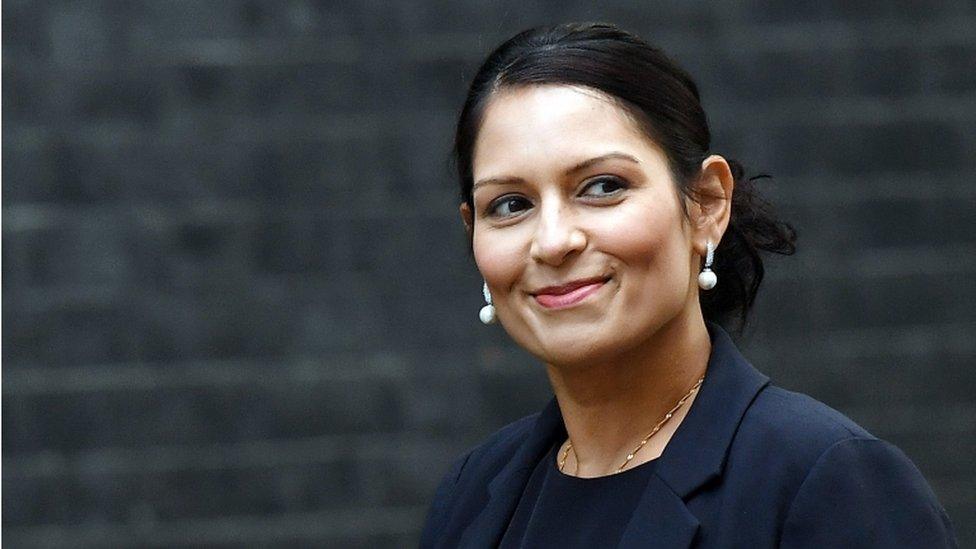Priti Patel's cabinet future in doubt over Israel trip row
- Published
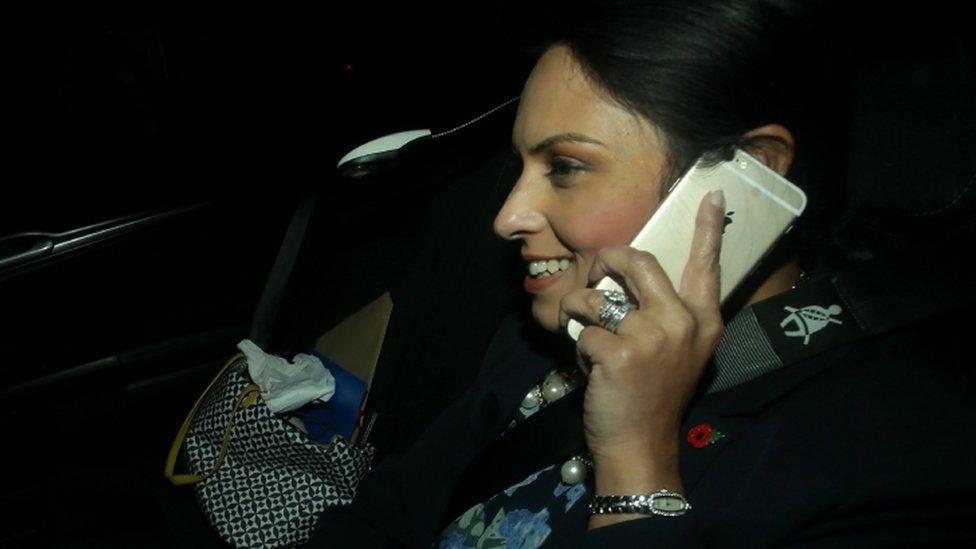
Priti Patel has left No 10 via the back door after talks with the PM to find out if she will be sacked amid controversy over meetings with Israeli ministers.
The international development secretary was ordered by the PM to cut short an African trip to fly back to the UK.
BBC political editor Laura Kuenssberg said a source told her that Ms Patel would rather resign than be sacked.
Ms Patel apologised about meetings with Israeli politicians in August.
But there are now questions about further meetings held in September.
Ms Patel arrived via the back door of Number 10 for her meeting with the prime minister after flying back to London Heathrow from Uganda.
The BBC's diplomatic correspondent James Landale said that by holding the secret meetings with Israeli officials, Ms Patel had broken "one of the cardinal principles of government, namely collective responsibility, the idea that government speaks and acts as one once a policy has been agreed".
He said this was about practicalities - so part of Whitehall knows what the other part is doing - and it also ensures ministers remain accountable.
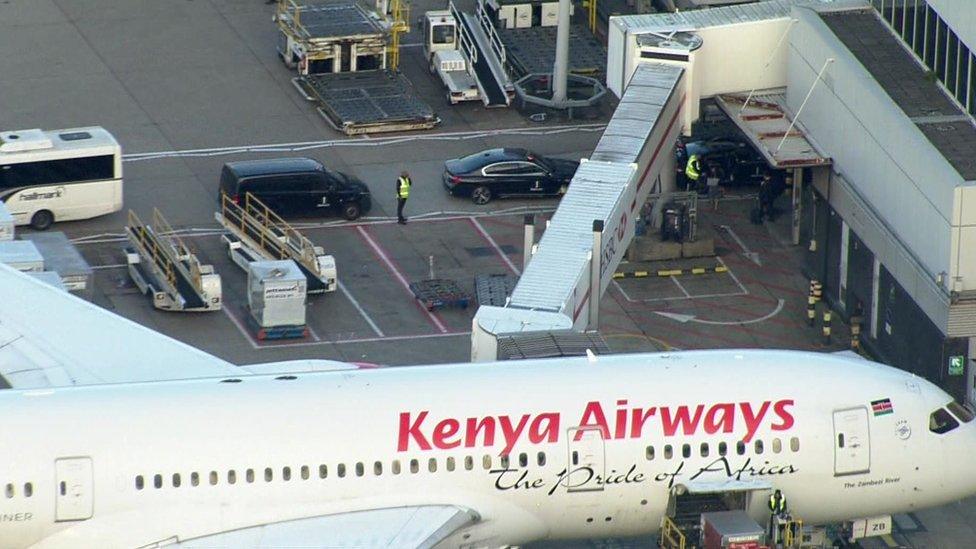
Priti Patel, top right, got into a ministerial car after arriving at Heathrow
Ms Patel was formally reprimanded in Downing Street on Monday, where she was asked to give details about a dozen meetings she had with Israeli officials while on holiday, which were not sanctioned by the Foreign Office.
It has also now emerged that Ms Patel conducted two further meetings in September without government officials present.
It is thought Lord Polak, honorary president of the Conservative Friends of Israel, was present at both meetings.
Ms Patel met Israeli public security minister Gilad Erdan in Westminster on 7 September.
He later tweeted about their meeting.
Allow X content?
This article contains content provided by X. We ask for your permission before anything is loaded, as they may be using cookies and other technologies. You may want to read X’s cookie policy, external and privacy policy, external before accepting. To view this content choose ‘accept and continue’.
On 18 September she met foreign ministry official Yuval Rotem in New York.
It is not yet clear whether Ms Patel had informed the prime minister about these meetings or of her plans to look into giving tax-payers' money to the Israeli military to treat wounded Syrian refugees in the Israeli-occupied Golan Heights region - a request that was turned down as "inappropriate" by officials.
In a further development on Wednesday the Israeli Haaretz newspaper reported that during August she visited an Israeli military field hospital in the Golan Heights - the UK, like other members of the international community, has never recognised Israeli control of the area seized from Syria in the 1967 Six-Day War.
There was no immediate comment from the Department for International Development on the report.
Ms Patel was forced to correct the record earlier this week, external about the number of meetings that she had attended and when the Foreign Office had been notified about them.
The MP said she had been wrong to suggest to the Guardian that Foreign Secretary Boris Johnson knew of the trip in advance when he had only learnt about it while it was under way.

Who is Priti Patel?
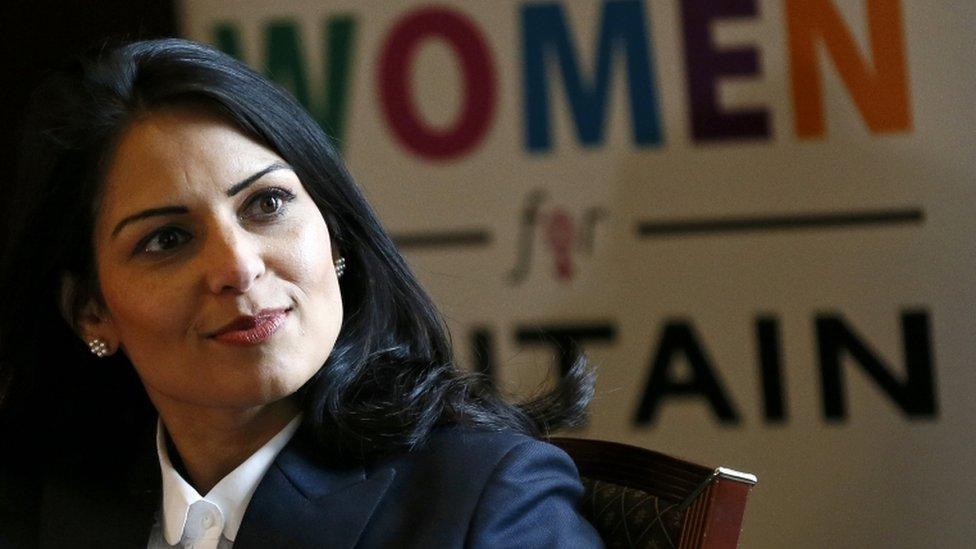
Elected as Conservative MP for Witham in May 2010
Served as a Treasury minister from July 2014 to May 2015
She then became employment minister from May 2015 to July 2016
Appointed International Development Secretary in July 2016
A longstanding Eurosceptic, she was a leading figure in the Vote Leave campaign during the EU referendum

Ms Patel, who has been an MP since 2010, is a long-standing supporter of Israel and a former vice-chairman of Conservative Friends of Israel.
Former Labour lord chancellor Lord Falconer told BBC Radio 4's Today: "She should not be colluding with a foreign government - it doesn't matter if it's an ally or not... to do it in that secretive way makes her look like she's much more the emissary of the Israeli government than a member of the British government."
Former Conservative international development minister Sir Desmond Swayne said that even if Ms Patel was forced to quit, just a week after Defence Secretary Sir Michael Fallon resigned for inappropriate behaviour, it would not be a "catastrophe".
"There are 22 Cabinet ministers and there are plenty of people who are talented to step into their shoes," he told BBC's Victoria Derbyshire. "It will not be a huge destabilisation."
Conservative Crispin Blunt tells Today it would have been alright if Patel had told Foreign Office about meetings
In a letter to Mrs May, Labour's shadow Cabinet Office minister Jon Trickett called on the prime minister to either call in her independent adviser on ministerial standards to investigate, or "state publicly and explain your full reasons for why Priti Patel retains your confidence".
However, Conservative MP Nadhim Zahawi - a member of the parliamentary foreign affairs committee - told BBC Two's Newsnight that he believed some of the criticism facing Ms Patel was down to the fact she was a pro-Brexit campaigner during the EU referendum.
He said Ms Patel was not having "clandestine" meetings with "an enemy state" and that the Foreign Office was made aware of the meetings while she was in Israel.
- Published7 November 2017
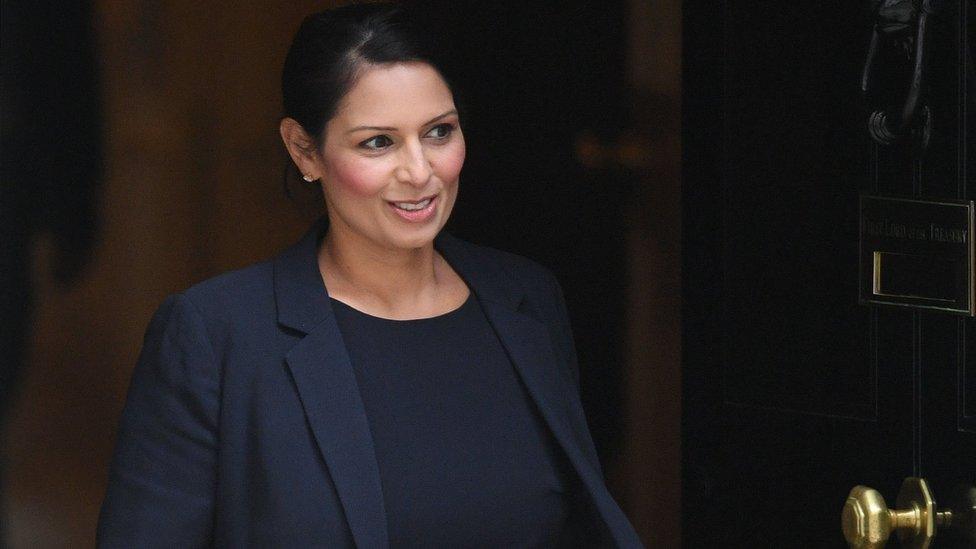
- Published6 November 2017
